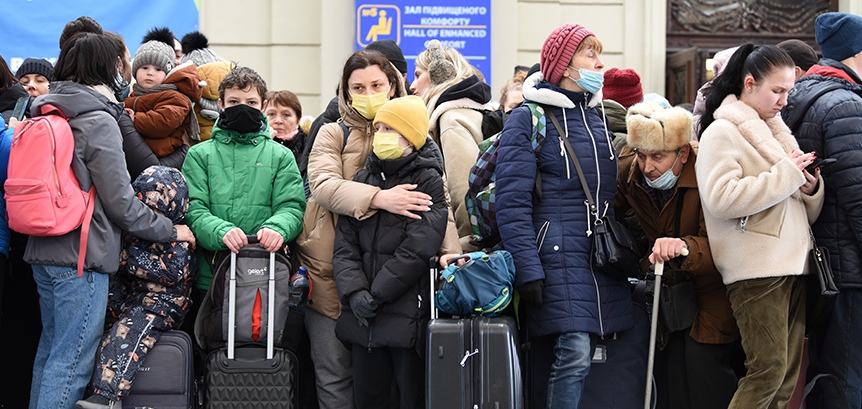
Posted on: December 12th, 2022

According to PoliticsHome (1), over 800 households are currently at risk, with just 145 of these being rematched with other hosts upon leaving their initial placement, and 260 being offered settled accommodation. Households have been presenting to their Local Authority as potentially homeless in order to find alternative homes.
Some of the Ukrainan guests who have been required to leave the host family either at or before the end of their six months have experienced significant conflict with their host(s), and UK Mediation has been involved in several projects to address these situations: providing mediation for such conflict situations so that the guests can remain with that host if possible, and/or that they can at least avoid becoming homeless while they try and secure alternative accommodation.
Our work has centred on training people to mediate between hosts and guests where conflict has arisen, and as a result we have been hearing many stories about the kinds of disputes that have had the potential to spoil this sometimes delicate relationship.
A lot of the contention has begun by the hosts and guests firstly having mismatched expectations from the start about what the arrangement would look like, and then failing to have dialogue about rules and boundaries as that arrangement has developed and in some cases deteriorated.
What we have learned in particular is that, as in many relationships, the important thing is to set some rules and expectations from the start, addressing questions such as:
What will the hosts expect of the guests, and what will the guests expect of the hosts?
Will the guests contribute to household chores? Who shall do the guests’ laundry, cook meals, wash up, vacuum the house, etc?
Should the guests, if they are able, be looking for paid work?
Will the guests eat and otherwise socialise with the family? How often?
Children’s issues seem to have been at the heart of many disputes, and again, there are questions that would need to be asked from the outset about what everyone expects:
Will the children be expected to mix and socialise with the host’s children, and be subject to the same rules?
All the children spending time together? Where and when?
Eating at the table? Phones off during meal times? Clear away dishes?
Children contributing to keeping the home clean and tidy?
Children bringing other children to the home? How many and when?
And then there are some basic house rules which, if discussed and agreed up front, should not be an issue, but if left unaddressed, could lead to misunderstanding and resentment:
What basic rules do we have in this house?
Shoes on or off indoors?
Where do we allow smoking, if at all?
What times can we come and go? What times should we expect quiet in the house? Guests having friends over?
Having heard the experiences of a lot of hosts of Ukrainian refugees, we have pulled these questions together as the ones which, if everyone in a host house were to agree the answers to these points, they would avoid probably 90% of the conflict that we are training people to now address.
And we do of course appreciate that there are some additional and important factors that really have to be taken into account when raising a list like this: first, that people’s cultural norms (both ways) would largely dictate their responses to these questions, and their expectations of others; secondly, that it would be quite overwhelming to expect the guests to be met with a list like this on day one, especially bearing in mind that the guests are in most cases fleeing a war zone and may well be traumatised, frightened, and concerned about those left behind, and thirdly that in nearly all cases, it would help to have some kind of language interpretation/translation in order to ensure that both the hosts and the guests can fully participate in the conversations that need to take place around the above points AND in instances when conflict does arise.
No-one could have predicted that Putin’s war would still be raging by Christmas 2022, and in spring of this year there was more of an expectation that refugees might have been returning to their homeland by now. Given that people have come to the UK to avoid the fall-out from this conflict, we are proud to be involved in this work to ensure that the homeowners who have taken in refugees can themselves provide a conflict-free space for their Ukrainian guests until the situation in their country improves.
If you require mediation services of any kind, please do not hesitate to contact our team today, and we'll do all we can to help.